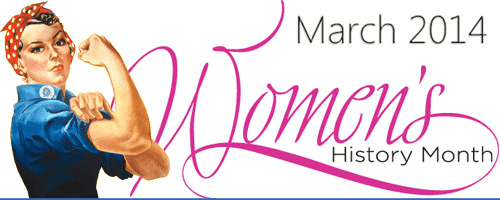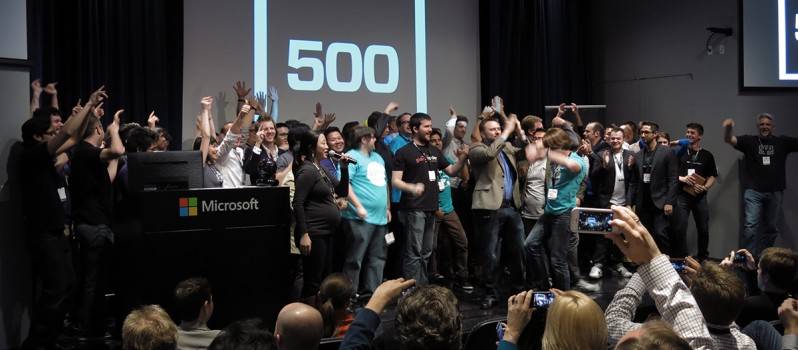Mary is a small, slim woman no taller than 5 foot 3, but she speaks with a sincerity and conviction unparalleled among people two times her size, and when she does so, the world stops and listens. When you speak to her, her eye contact never wavers from yours as she carefully digests every word, consonant, and syllable that you say. She is a mother, a teacher, a leader, and an entrepreneur (in no particular order, she puts her heart into everything). Her laughter is contagious, her kindness infectious, her spirit uplifting, and her ambition inspiring. She embodies beauty and strength.
Mary (whose name has been changed for anonymity) is a woman that I met last April, who I had the pleasure of working alongside throughout 2013. Five years ago, Mary and her family were living in a mud shack. When a local organization offered to give her a microloan to start her own business, Mary wasn’t sure she was capable of becoming an entrepreneur, but she mustered up her confidence and began her own store, selling bottles of soda for around $0.20 USD in her small village. A few years later, Mary saved enough money from her small business to build a semi-permanent house. She and her family are healthy and financially stable; most of the money she makes now goes towards her children’s school fees to ensure that they receive a good education. Furthermore, she’s now an Assistant Director of the nonprofit organization that gave her the loan to start her business in the first place. She inspires women in three different countries to follow her lead. She is Ugandan, and she is the strongest woman I have ever met.
Mary’s not alone. There are many women like her that I met throughout 2013, in Kenya, Uganda, and Tanzania. These women wake up at the crack of dawn to dig in their gardens (most families living in the villages rely upon the food they grow themselves), care for their children, go to work, tend their businesses, and complete all house chores. When I went for morning jogs at 7 AM through the villages, these women had been hard at work in their gardens for two hours already; they would greet me with wide, toothy smiles as they carried 50 pound bunches of bananas on their heads while racing me up some of the toughest, muddiest hills on my run. It is an unfortunate truth that throughout East Africa, women often find themselves completing all manual labor and house chores while men sit back, without contributing. Because men control the majority of the monetary resources within a family, they use this position to assert authority over their households, and over all financial decisions. Many men are loath to spend money on their daughters’ educations, which just perpetuates the unjust cycle of subjugation among the female population. Violence against women, including domestic abuse and rape, are frighteningly common issues. There are many communities worldwide in which women are the unsung heroes of the society, and Uganda is certainly no exception.
There’s hope, though – and so much of it. Through hard work and dedication, these women are not only changing their personal circumstances, but are changing the entire cultural paradigm, village by village. By starting their own businesses and making money themselves, the men in their lives are starting to view these women as active contributors to the financial wellbeing of the family, and the power dynamic is slowly shifting. More money is spent on educating girls, and an empowerment revolution is well on its way as both the social and professional environments morph into more gender-inclusive spaces. This isn’t just anecdotal; it is a well-documented phenomenon occurring around the world.
There’s a lot that Latin America (as well as the rest of the world) can learn from the example that these entrepreneurial women are setting.
Since arriving to Chile in December after my time in Uganda, I’ve been on the job search grind. To put it lightly, finding a full-time job in this country has been a frustrating experience. During job interviews in Chile I have been: 1) asked on dates, 2) had an executive laugh in my face when I said I wanted to actually get paid for my work (never mind my ivy league education and three years of international work experience), and 3) forced to outline a project proposal while my potential employer was playing with his secretary’s hair the entire time I was speaking.
It would be unfair for me to say that my job search frustration is completely a consequence of my gender. It’s not. But being a woman certainly doesn’t help. The Inter-American Development Bank notes that unemployment in Latin America is two times higher among women than among men; in addition, when comparing women and men of equal age and education, women still earn 17% less than men throughout the region. We still have a long journey toward achieving gender equality in LatAm.
Though I’m tempted to slap the guy that asked me on a date during my interview, spit in the face of the one who didn’t think I was worthy of any pay at all, and put the misogynist playing with his secretary’s hair in a headlock, I know it wouldn’t change a thing. If there’s anything I learned from the inspirational women I met in Uganda, it’s that the most effective change to the system is made from the inside out. Telling men what we can do and what we’re worthy of isn’t enough when you’re dealing with a culture in which the male-dominated hierarchy is so heavily entrenched – we have to get our hands dirty, and show them.
Let’s keep this in mind during Women’s History Month this March. Though Sheryl Sandberg has received a lot of flack recently, I agree with her assertion that women need to lean in; if for no other reason than to SHOW rather than TELL men what we are capable of. In Uganda, let’s tend the gardens, care for the children, do all the house chores, while running a small business on the side to prove to the men running society (as well as the young girls that look up to us) that we’re capable of more than they could have ever imagined. In Chile, let’s start our own companies, and lead the way in changing and improving how business is conducted not only in “Chilecon Valley,” but around the world. In the US, let’s infiltrate Wall Street, sit at the table with the men, and work our way up to the executive positions that we not only deserve, but will thrive in.
The thing is – we can’t do it alone. Women need to inspire and empower one another. Many women in Chile are starting their own businesses, pioneering research fields, and leading the country! This is encouraging; however, throughout my time here, I’ve been disappointed to notice that far too many women are playing into the stereotypical roles that men have set for them. On that note:
#1. My job search is not made any easier by the woman who was actually flattered when asked on a date during an interview, and said “yes”. You’re worth more than that, and so am I. We need to band together and issue a collective “NO” on this type of disrespectful behavior in professional environments.
#2. You are worthy of pay that is equal to that of your male colleagues. By collectively never settling for less, we can rightfully demand what we are due en masse.
#3. Your beauty and charm in the workplace are not your only value-add. Respect yourself, the value that your insights and education provide, and dress professionally. And for the love of God, don’t let your boss pet you while you sit in on an interview with a potential employee. Excuse me while I go puke in your corporate bathroom.
I’m so grateful that I had the opportunity to meet women in Uganda whose hard work and dedication inspired me and empowered me in so many ways. The spirit of these women will always be with me, whether I’m the one being interviewed, or I’m the one interviewing. This Women’s History Month, I feel compelled to share their spirit and wisdom with others. The time is ripe to collectively step up to the plate, and hit it out of the park.



